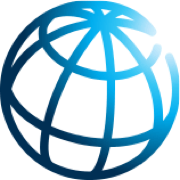 An increasing number of developing countries – Mexico, China, Turkey, India, Vietnam, Brazil, and South Africa – are emerging as leaders in sustainable energy, with robust policies to support energy access, renewables and energy efficiency, according to a new World Bank Report.
An increasing number of developing countries – Mexico, China, Turkey, India, Vietnam, Brazil, and South Africa – are emerging as leaders in sustainable energy, with robust policies to support energy access, renewables and energy efficiency, according to a new World Bank Report.
But there is huge room for improvement across every region in the world and particularly in Sub-Saharan Africa, says the report, entitled RISE (Regulatory Indicators for Sustainable Energy).
RISE is the first global policy scorecard of its kind, grading 111 countries in three areas: energy access, energy efficiency and renewable energy. The report is aimed at helping governments assess if they have a policy and regulatory framework in place to drive progress on sustainable energy and pinpoints where more can be done to attract private investments. RISE also enables countries to measure their performance against others, and will allow them to track progress over time.
“RISE will be an invaluable tool for policymakers, helping them to identify and bolster policies and regulations that spur the kind of investments needed to extend access to modern, affordable and reliable energy for all,” said Riccardo Puliti, Senior Director and Head of Energy and Extractives at the World Bank.
While many of the countries surveyed in RISE have embraced the sustainable energy agenda, the report identifies important policy gaps across all regions, and highlights opportunities for rapid progress. SubSaharan Africa is the world’s least electrified continent, where 600 million people still live without electricity. As many as 40 percent of Sub-Saharan African countries surveyed by RISE have barely taken any of the policy measures needed to accelerate energy access, compared to less than 10 percent of Asian countries. Exceptions include Kenya, Tanzania, and Uganda which have strong policy frameworks.
RISE assesses where additional efforts are most needed – both developed and developing countries need to pull their weight. Among the top 10 high-impact countries for renewable energy and energy efficiency, all have relatively robust policy frameworks in place. The same cannot be said for the top 10 high-impact countries for access – both Nigeria and Ethiopia still need to make much progress in policies and regulations. The report notes that in order to improve electricity access, there must be a better balance between making power both affordable for customers without undermining the financial viability of the utilities that need to invest to provide service.
With the plummeting costs of solar panels, there is now an opportunity to bring electricity to customers beyond the reach of utility networks. But many countries, have done little to create a regulatory environment favorable to accelerate the diffusion of solar home systems.
RISE finds that measures to promote renewable energy – such as targets, incentives and institutions – are widespread. The challenge is no longer how to build renewable power plants, but how to ensuRISE data is freely available on an online platform that enables users to customize the information they need on each country’s power sector and policy framework an online platform that enables users to customize the information they need on each country’s power sector and policy framework. The report has 27 indicators and 80 subindicators and examines over 3,000 laws, regulations and policy documents.
Source: World Bank

